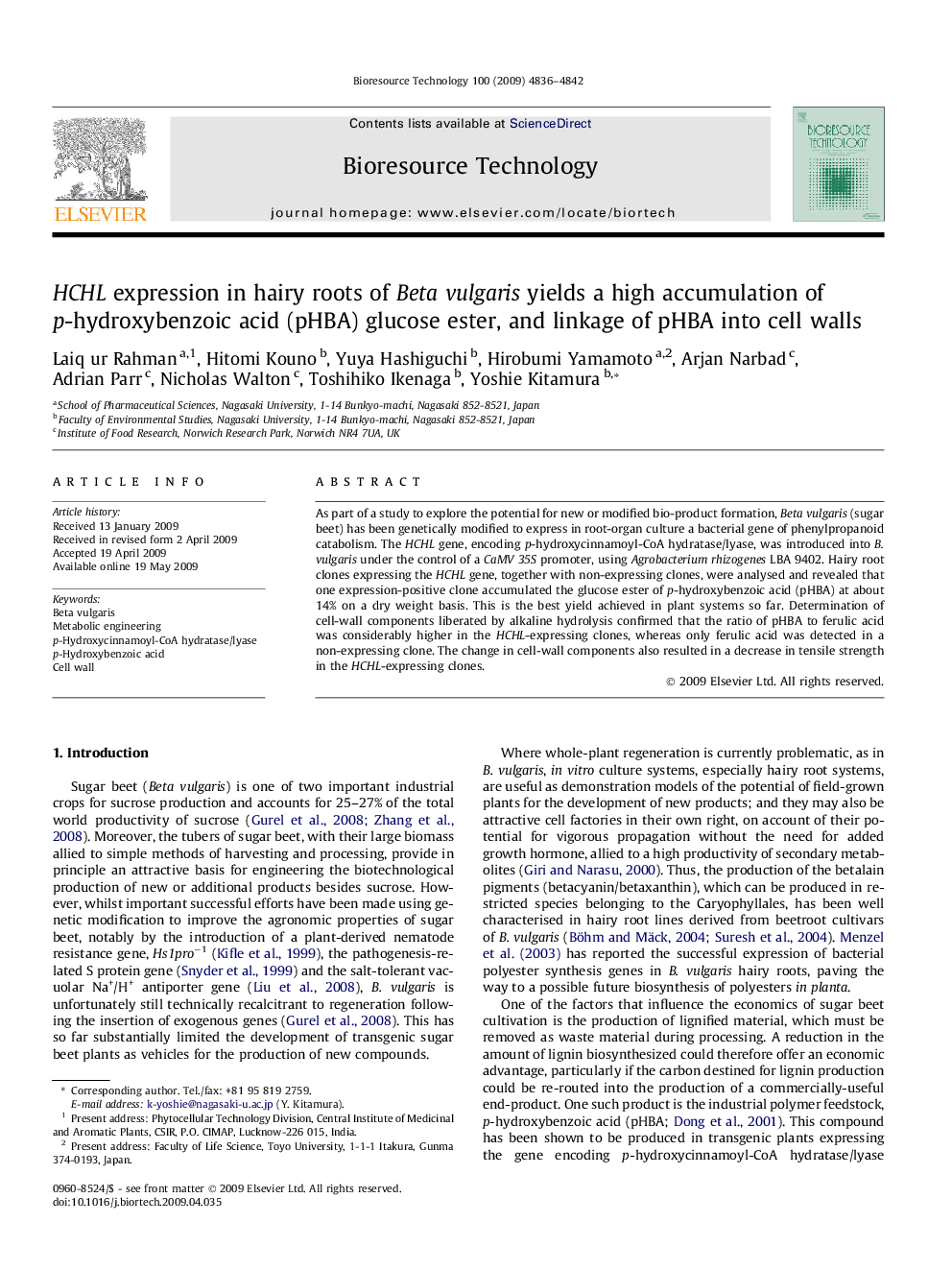| Article ID | Journal | Published Year | Pages | File Type |
|---|---|---|---|---|
| 683173 | Bioresource Technology | 2009 | 7 Pages |
As part of a study to explore the potential for new or modified bio-product formation, Beta vulgaris (sugar beet) has been genetically modified to express in root-organ culture a bacterial gene of phenylpropanoid catabolism. The HCHL gene, encoding p-hydroxycinnamoyl-CoA hydratase/lyase, was introduced into B. vulgaris under the control of a CaMV 35S promoter, using Agrobacterium rhizogenes LBA 9402. Hairy root clones expressing the HCHL gene, together with non-expressing clones, were analysed and revealed that one expression-positive clone accumulated the glucose ester of p-hydroxybenzoic acid (pHBA) at about 14% on a dry weight basis. This is the best yield achieved in plant systems so far. Determination of cell-wall components liberated by alkaline hydrolysis confirmed that the ratio of pHBA to ferulic acid was considerably higher in the HCHL-expressing clones, whereas only ferulic acid was detected in a non-expressing clone. The change in cell-wall components also resulted in a decrease in tensile strength in the HCHL-expressing clones.
